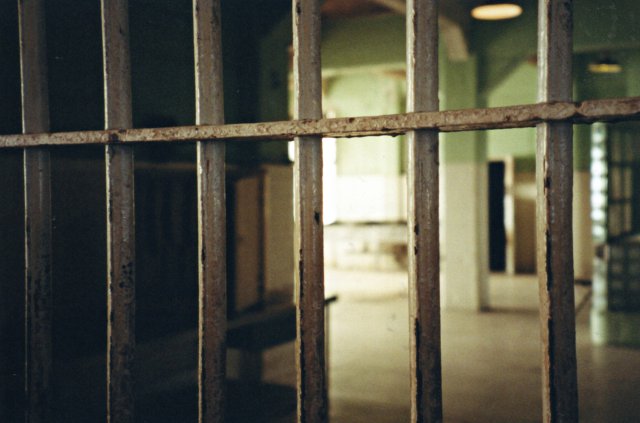When a particular government fails to address the human rights issues plaguing its country, people around the world look to the United Nations to speak on and solve the issues created by government inaction. The UN Charter called for the creation of a Commission on Human Rights, which in turn created the Special Procedures of the United Nations so that alleged human rights abuses could be brought to the commission’s attention and investigated. Today, the United Nations Human Rights Council maintains this network of experts, who monitor different countries and situations where human rights are threatened. In the 2014 Joint Communications Report presented by the Special Procedures, these experts submitted six complaints relating to alleged human rights abuses in the Kingdom of Bahrain.
The first complaint alleges that Bahraini security forces detained, tortured, and unfairly tried a teenage boy. Officers arrested the subject, only 15 years old in 2012, during clashes between police forces and protesters in Bilad al-Qadeem. During his initial detainment, security officers tortured the subject in an attempt to obtain a confession from him. On April 4th 2013, a court sentenced him to 10 years in prison for allegedly burning a police vehicle. However, the court relied mostly on evidence obtained under duress. The subject is currently detained at Jaw Prison, where authorities have refused to provide him medical care for injuries sustained during imprisonment.
The second complaint alleges that police officers arbitrarily detained, tortured, and held a man without access to a lawyer. Muhammad al-Arab is a 22 year old nursing student and political activist who was arrested in Hamad Town in early January, 2014. Throughout his detainment, officers severely beat and tortured him. Interrogators repeatedly threatened him with more torture unless he provided them with a confession. From January 9th-21st, authorities held Mr. al-Arab without contact with his family or legal council. Subsequently, prison authorities did not permit Mr. al-Arab to attend his court proceedings.
The third complaint alleges that Bahrain prison authorities continue to deny medical care to a prisoner. The subject of this complaint is Mr. Hassan Mushaima, a political activist and senior member of an opposition group, the Haq Democracy Movement, who is currently detained at the Bahrain State Prison. Mushaima’s health has significantly deteriorated while in jail, and authorities have refused to provide him access to medical treatment. Despite suggestions by a medical specialist that he undergo a positron emission tomography (PET) scan and chemotherapy, corrections officers have not provided Mr. Mushaima with treatments for cancer. In addition, Mr. Mushaima suffers eyesight problems brought on by diabetes. Despite advice from a medical examiner that his condition would require eye surgery, prison authorities have thus far only provided him with eye drops. Mr. Mushaima is the subject of five previous complaints to the UN Human Rights Council.
The fourth complaint alleges that the Bahraini government practiced religious discrimination and intimidation by detaining and deporting a senior leader of Bahrain’s Shi’a religious community. On April 12, 2014, security forces raided Sheikh Hussain Mirza Abdelbaqi Najati’s home and office. On the 15th, he complied with requests to appear in court, where authorities ordered him to hand in his Bahraini passport and leave Bahrain for Iraq within 48 hours. Police officers repeatedly threatened him and his young son to comply with the court’s orders or face imprisonment. Sheikh Najati is one of 31 Bahrainis who had their citizenship revoked by the Ministry of the Interior on November 7, 2012. The arbitrary targeting of this prominent religious individual could be considered government intimidation of the entire Shi’a community in Bahrain.
The fifth complaint alleges that a Bahraini citizen who is currently detained by British immigration authorities is at risk of torture if he is returned to his native country. British Immigration Authorities detained the 19 year old anonymous subject of this complaint at the Harmondsworth Detention Centre in London. Although immigration authorities have rejected the subject’s application for political asylum twice, Bahrain has a clear record of torturing political prisoners, and he is likely to face mistreatment if he is returned home.
The sixth complaint alleges that the Bahraini judicial system has arbitrarily extended the detention of a Pakistani national. Officers with the Criminal Investigations Directorate (CID) arrested Mr. Mudassir Ali, a Pakistani businessman, at his office in Bahrain on August 13th, 2013. In September of that year, a court convicted Mr. Ali of embezzlement and he was sentenced to six months imprisonment and deportation to Pakistani. Upon appeal, the court reduced Mr. Ali’s sentence to three months and deportation. However, after completing his three month sentence in Hozel Job Prison, authorities leveled new charges against Mr. Ali and he is still detained there without trial.
Americans for Democracy and Human Rights in Bahrain would like to thank the United Nations Human Rights Council, and especially the Special Procedures, for their work in investigating claims of human rights abuses in Bahrain. This system of UN experts and institutions lends a strong voice to victims of human rights abuses who would otherwise be powerless. We hope that the Human Rights Council continues to monitor the Kingdom of Bahrain, as this attention will encourage transparency, accountability, and reform in that country.
###
Peter Bogdanich is an advocacy intern for ADHRB.
A pdf version of this post is available here.





